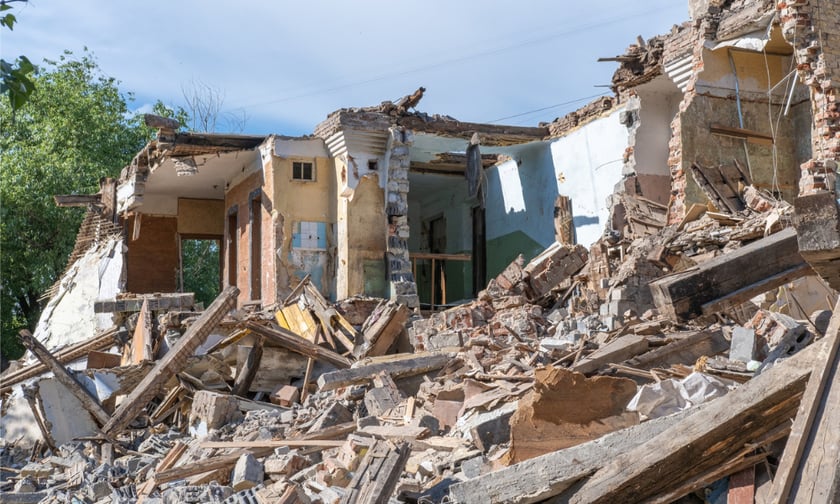

Onshore property insured losses caused by Hurricane Idalia are anticipated to range from $2.5 billion to $4 billion, according to data from Verisk.
The assessment from the data analytics firm includes estimated wind damage and insured estimates of storm surge along Hurricane Idalia's path, with most losses attributed to wind damage.
On Aug. 30, Hurricane Idalia made landfall in Taylor County within Florida's Big Bend region, near Keaton Beach. At that time, it was categorized as a powerful Category 3 hurricane.
Despite its landfall in sparsely populated areas of Florida, Hurricane Idalia caused catastrophic damage in small communities such as Perry, which faced the brunt of the storm's fierce western eyewall shortly after landfall. Cedar Key also experienced historic storm surge inundation.
Idalia's northeast trajectory led it offshore on the morning of Aug. 31, where it continued to bring tropical storm-force winds, heavy rain, and powerful surf to the North Carolina coast.
The impact of the storm included varying degrees of wind damage throughout the affected areas, with more severe damage occurring near the point of landfall in the Big Bend region. This damage ranged from roof cover losses in residential homes to torn-up roof membranes in commercial structures.
Numerous downed trees were reported in cities along Idalia's path, including Tallahassee, Gainesville, Jacksonville, Valdosta, Ga., and Savannah, Ga., with a significant impact on the region's large pine trees, potentially resulting in costly cleanup and roof replacement expenses.
Manufactured homes, a significant portion of the residential inventory in the Big Bend region, experienced extensive damage, including roof loss, siding damage, and near-total destruction due to wind and surge, particularly in coastal areas.
Storm surge had a substantial impact on coastal neighborhoods, including Keaton Beach, Steinhatchee, Horseshoe Beach, and Cedar Key. Fast-moving coastal surges washed away manufactured homes, while residential homes on slabs suffered significant water-related damage to various building components and contents. Elevated beachfront homes performed relatively well. Flooding also occurred in waterfront areas around Tampa, St. Petersburg, and Charleston, S.C..
Verisk data also noted that compared to last year's Hurricane Ian, Idalia impacted fewer buildings, which should result in reduced stress on the construction industry as rebuilding efforts commence in the coming weeks and months.
It is worth noting that Verisk’s estimates differ from an earlier assessment from UBS; the bank reported in its own findings that insured losses from Idalia that could reach as much as $9.36 billion, with a 50% chance of reaching over $4.05 billion and a 10% chance of hitting $25.6 billion.
What are your thoughts on this story? Please feel free to share your comments below.
